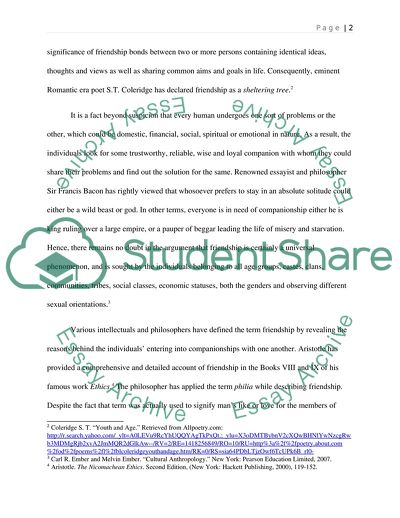Cite this document
(Aristotles Theory of Friendship Article Example | Topics and Well Written Essays - 2250 words, n.d.)
Aristotles Theory of Friendship Article Example | Topics and Well Written Essays - 2250 words. https://studentshare.org/philosophy/1848748-paper-for-philosophy-207
Aristotles Theory of Friendship Article Example | Topics and Well Written Essays - 2250 words. https://studentshare.org/philosophy/1848748-paper-for-philosophy-207
(Aristotles Theory of Friendship Article Example | Topics and Well Written Essays - 2250 Words)
Aristotles Theory of Friendship Article Example | Topics and Well Written Essays - 2250 Words. https://studentshare.org/philosophy/1848748-paper-for-philosophy-207.
Aristotles Theory of Friendship Article Example | Topics and Well Written Essays - 2250 Words. https://studentshare.org/philosophy/1848748-paper-for-philosophy-207.
“Aristotles Theory of Friendship Article Example | Topics and Well Written Essays - 2250 Words”. https://studentshare.org/philosophy/1848748-paper-for-philosophy-207.


